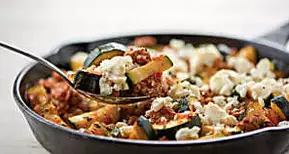the sandwhich generation
Surviving the sandwich years - caring for children and parents
After Brendan Courtney's documentary started a national conversation about parent care, Alana Kirk reflects on being part of the 'sandwich generation'
 3
3
Nothing prepares us for that call. Bookshelves are weighed down with the guides on how to parent our children, but they are light when it comes to providing help on how to parent our parents. However, for many of my generation, it is increasingly common to be caught in the pressure valve of caring for children and parents at the same time. The sandwich generation - of which a Trinity College study found that a third of all women, and presumably men, in Ireland belong to - is a growing group, as the trends continue for women giving birth later and people living longer.
But at last a national conversation seems to be happening around the issue of caring for our parents. As TV presenter Brendan Courtney's RTÉ documentary on his family's fight to get support to care for his dad in his own home made the headlines, it hit home with many confronted by those same stressful challenges.
I know, because my family faced the same. The difference was, we were able to care for my mum at home. My sandwich years arrived by ambulance one night, but for many others, it can be a slow drift into a scenario where the person who cared for you now needs your help. Very few of us are prepared. And it seems the system here in Ireland is unprepared too.
Four days after I gave birth to my third baby, my mum had a devastating stroke. Like Brendan Courtney's dad, it was totally unexpected, and in a matter of moments she transformed from a lively, glamorous and loving mother who had been with me at my daughter's birth, to being immediately and permanently paralysed and brain damaged.
 33
33
I had spoken to her just hours earlier. I was still in hospital recovering from a c-section and she was about to put my other daughters to bed. I was coming home in the morning and she was so excited. As I fed my newborn baby, I tried to do the crossword, waiting for mum's texts. We always did it together. But no texts came. My husband came instead, his face telling me my life had changed before he uttered a word.
I had to discharge myself from one hospital and get driven to another where I found my mum on a bed in A&E, unresponsive. For a week we were told to prepare for the worst, but she survived - the worst was still to come. As I sat round the kitchen table every night with my dad and brother, clutching their hands wondering how we would cope with her death, slowly it dawned on us that she wasn't going to die, and we would have to cope with her care.
She was unable to feed herself, talk, or move anything but her left arm. She was doubly incontinent and brain damaged. I searched her wild eyes for a clue that my mum was in there, but it took a long time before that happened. She eventually gained speech but was unable to really communicate and couldn't follow or participate in conversations.
So the shock of her imminent death was replaced with the shock of her imminent and long-term care. It was only when I went on to write about the impact of strokes on families and talked to others that I realised how lucky we were, because once my mum was stable, she was transferred back to Belfast where they lived, and that made all the difference.
Unlike the HSE Fair Deal Scheme which, as Mr Courtney bravely highlighted in We Need To Talk About Dad, only provides financial support for long-term care in nursing homes, the NHS supports community care. In Belfast, my dad was assessed and deemed fit enough to take on the burden of looking after mum at home, supported by a comprehensive care package that included six visits every 24 hours by two carers to wash and change my mum. Because my mum was bed-bound, my active dad became house-bound, so the package also provided cover two mornings a week so that he could go out. Although it was tough caring for mum as well as my own children, at least we had the choice available to us to figure out as a family the best way to care for my mum. For us that was at home, surrounded by her things, where my dad could get on with his life, and friends and family could congregate.
I have to say that caring for her at home wasn't easy. It was extremely challenging and there were many times when we wondered if we had done the right thing. The main burden fell on my dad whose life changed the night my mum's did. My brother and I lived in Edinburgh and Dublin and had careers and young families.
 33
33
For the next five and a half years, I was constantly torn between my old family and my new, travelling up the M1 every other weekend, and weeks at a time to give my dad a break and to spend time with mum. Our lives were dominated by our mum's care needs, and the awful grief of caring for someone we loved so much but whose quality of life had been so diminished was harrowing. But it was also a gift.
My mum died in my arms a year ago, with my dad and brother holding her hands. She died as she loved living, at home, surrounded by her family. Despite the fact that those five and half years were the toughest of my life, I am so grateful to have had them with her.
An RTÉ poll taken after Mr Courtney's documentary showed that 85pc of people would like to be cared for in their own homes, by the people that loved them. But that can only be done with the proper financial and community supports. It is time this country took note because we need to talk about our parents, and how we care for them.
The Sandwich Years by Alana Kirk is out now (Hachette Ireland, €8.99)
Irish Independent

What are your options?
You've been struggling to conceive, and your GP has now advised you to explore your options in terms of fertility treatment.

Are you struggling to conceive? These common health conditions may be the cause...
Almost one in five couples are now affected by infertility, which can be caused by a wide range of conditions. But what are the most common factors causing difficulties for couples who are trying to start a family.

'Some days I get upset or angry and other days I'm grateful for what I have'
Gemma Gallagher is turning 40 this month and while her life as a nanny and aunt (of 10 — soon-to-be 11) is filled with children, the Offaly woman doesn’t have any of her own.

Life Newsletter
Editors Choice

'Don't care about what the neighbours say' - TV presenter Diarmuid Gavin...

'We cannot keep them on the shelves' - Zero waste movement is changing the way we shop...

'This is an important public health message' - Trinity professor's warning on...
Also in Life

‘I could not believe it when I was told that my baby was there and had a...
One of the most common causes of infertility...

'The love and the care he got there oozes out of him' - Parents of baby who spent...
The family of a young boy who was born "perfect" in...

'I was upset when we found out my daughter was pregnant... because she...
Most people think they have an idea of what...

Jennifer Zamparelli: 'I really found being a full-time mum is the hardest job I've ever...
Jennifer Zamparelli may have squared up to...

'This is the closest Mars will have been to Earth in 32 years' - Everything you...
Stargazers are in for a treat tomorrow with...

'We've never looked back' - meet the family who gave up their 9-5 jobs to open an...
A family has said they are "so much happier"...

'What happens at Granny's stays at Granny's' - Should grandparents be given...
There's a sign inside the front door of my parent's...

The best free activities to keep your kids busy all summer long
While the kids are looking forward to eight long weeks of...

What kind of dad is he?
Ask any new parents what it's like to have kids and they'll tell you it's life-changing. And then they'll lie down for a...

'When you hire a blacksmith, you get a one-of-a-kind bespoke piece' - man (47)...
I tried a few things after school. I went to...
Review your data settings
Cookies are set through this site to recognise your repeat visits and preferences, serve more relevant ads, facilitate social sharing, and to analyse traffic. By using the site, you consent to the use of cookies that may process personal data for these purposes in line with our privacy statement and cookie policy.
![[Gallery] The 40 Biggest Failed Restaurant Chains [Gallery] The 40 Biggest Failed Restaurant Chains](https://images.outbrainimg.com/transform/v3/eyJpdSI6IjllNGQyMzgxNDY2MDhhZjMzMWJhZWFlODY1MWU2MWFmNjI0OTgyMmU1ZjBiZGRjNmU1MDhkMWFjY2NkOWJhNWUiLCJ3IjoxOTMsImgiOjEwMywiZCI6MS41LCJjcyI6MCwiZiI6MH0.webp)






![[Video] Purple Vs. Memory Foam: Who Wins the Mattress Wars? [Video] Purple Vs. Memory Foam: Who Wins the Mattress Wars?](https://images.outbrainimg.com/transform/v3/eyJpdSI6ImNmNTRiYTljZmNkM2VjMmEzZDRjMDUxMGI4MmJmMjE4YWY0ZDE2MjNhOWQ1YmUxNDkxOGQ1NTJlZmYxYzAyMjkiLCJ3IjoxOTMsImgiOjEwMywiZCI6MS41LCJjcyI6MCwiZiI6MH0.webp)
![[Video] Why Purple Mattresses Blow Memory Foam Away [Video] Why Purple Mattresses Blow Memory Foam Away](https://images.outbrainimg.com/transform/v3/eyJpdSI6IjdiNmNlMjdkYmI5NmM2MTE2NjdhMzhiNDM0NzA0Zjk5MmIzMDBhMmI0OWJmZTAyYzJjYjQzZmVmMGI5MzJmNDUiLCJ3IjoxOTMsImgiOjEwMywiZCI6MS41LCJjcyI6MCwiZiI6MH0.webp)




![[Gallery] This Is Why Charles Bronson Would Never Discuss His Military Service [Gallery] This Is Why Charles Bronson Would Never Discuss His Military Service](https://images.outbrainimg.com/transform/v3/eyJpdSI6IjEzZmE2YmIzNzM0MzM5NThjNjA5NWFmYmMxOTI3MTdkYzQzOGYzZjZkNGZkZmFmZmYyZGRlMGMyYjIxMDVmN2YiLCJ3Ijo4NSwiaCI6ODUsImQiOjEuNSwiY3MiOjAsImYiOjB9.webp)
Comments
Post a Comment